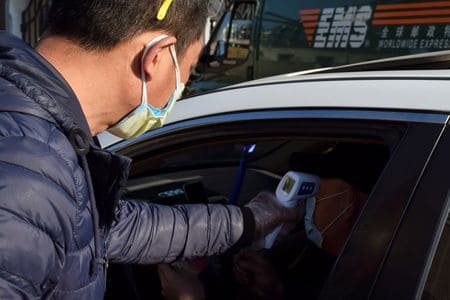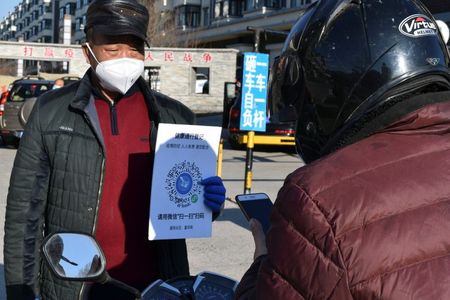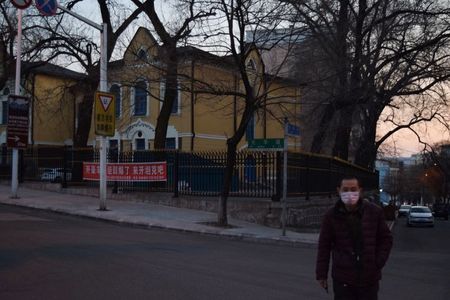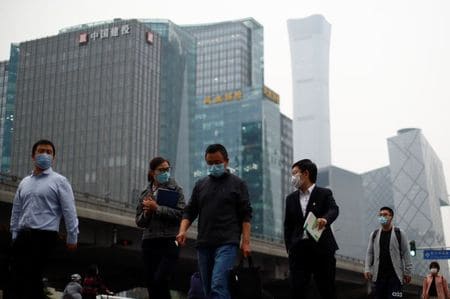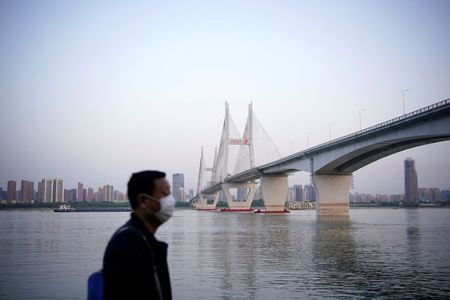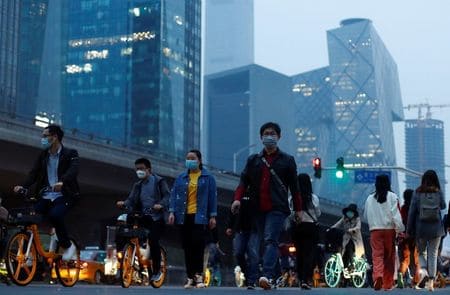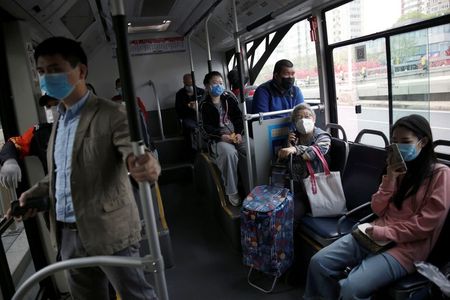BEIJING (Reuters) – China reported a decline in new confirmed cases of the coronavirus in the mainland on Wednesday, but there was an increasing number of local transmissions in its far northeast bordering Russia.
China had 46 new confirmed cases on Tuesday compared with 89 a day earlier, according to the National Health Commission. Of the new cases, 36 involved travellers arriving from overseas, compared with 86 a day earlier.
The 10 remaining cases were new locally transmitted infections, with the northeastern Heilongjiang province accounting for eight and the southern Guangdong province two.
Having largely succeeded in stamping out local transmission of the virus, Chinese authorities on guard against a second wave of contagion fear imported cases now pose the greatest danger.
In Beijing, where prevention measures remain stringent, an imported case from the United States was also reported on Tuesday, state television said. The patient started to show symptoms two days after arrival, despite testing negative initially.
Heilongjiang has become a front line in China’s fight to keep out imported cases as infected Chinese nationals return overland from Russia. China has closed the border with Russia at the Heilongjiang city of Suifenhe.
New infections involving travellers arriving from Russia have also hit other parts of China such as Inner Mongolia and the financial hub of Shanghai.
As of Tuesday, the total number of confirmed cases in mainland China had reached 82,295.
Authorities said 3,342 people have died from the virus in China.
While China appears to have flattened the trend line for new infections, U.S. President Donald Trump has accused the World Health Organisation (WHO) of promoting “disinformation” fed by Beijing when the outbreak first occurred, which probably resulted in the contagion spreading more widely.
Trump halted funding to the WHO on Tuesday, prompting China to urge the United States to fulfil its obligations to the WHO.
Foreign Ministry spokesman Zhao Lijian said on Wednesday the pandemic, which has infected nearly 2 million people globally, was at a critical stage and that Washington’s decision would affect all countries.
HUBEI RECOVERS
The vice mayor of Wuhan, the capital of the central province of Hubei and the origin of the coronavirus outbreak in China, said on Wednesday the city aimed to fully resume rail, flight and freight operations by the end of this month after a more than two-month lockdown was lifted on April 8.
Liu Ziqing also told a press conference that taxi services would restart in an orderly manner, work on major transport projects would be accelerated and that operations at ports in the city, which lies at the confluence of the Han and Yangtze rivers, would be restored by the end of this month.
Reflecting the shift in priorities to the northeast, three planes loaded with medical equipment and protective gear donated by Hubei province flew from Wuhan to Heilongjiang on Wednesday, and another flight was planned for Thursday, the National Development and Reform Commission said.
(Reporting by Ryan Woo, Se Young Lee, Sophie Yu, Min Zhang, Liangping Gao and Tom Daly in Beijing; David Stanway in Shanghai; Additional Reporting by Yawen Chen; Editing by Sam Holmes and Simon Cameron-Moore)


